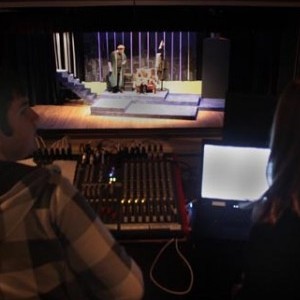How to Work Sound in a Theatre Production

Working sound has a big role in any theatre production. You can see and hear an actor’s monologue but you cannot see the work behind his work which mainly a sound theatre producer does. On stage, when you hear different voices and tones, you cannot judge how they come to you with great accuracy and equal levels. It is basically the work of sound in a theatre production which gives you this pleasure. Many people face enormous difficulties to work as a sound specialist but if you do some rehearsals with a proper setup then you can learn this complex art.
Instructions
-
1
Sound equipment
First you need to secure all types of sound equipment for potential rehearsals. You should place all the floor mics at their proper places. You can also ask the director of the theatre for consultation as to where you should place all the mics. Art director and the play’s director or manager will be very helpful giving you important details about many things. You can also ask them about the floor mics as where you should install them. You can even check them by asking actors to perform any scene just for checking the sound setup. Actors will also tell you where the floor mics should be installed as they cannot give them any kind of disturbance during the play. -
2
Learning soundboard functions
Learning soundboard functions is very important. You should get familiar with the equipment and all the possible functions as well. It will give you freedom to use all types of soundboards and their functions which are being used in theatres. Around the world in many countries, you will see how to organise these soundboards. Though technical spaces can vary but real functions remain the same and always work with similar kinds of techniques. -
3
Testing sound levels
Testing sound levels is another major part if you want to become in charge of the sound in any theatre. Check microphones for that reason and check out their clarity level. -
4
Marking sound cues on a cue sheet or script
Making sound cues on a cue sheet or script is also a very good method as it will certainly guide you in the future as well. This will also help you tackle any potential sound difficulties.






